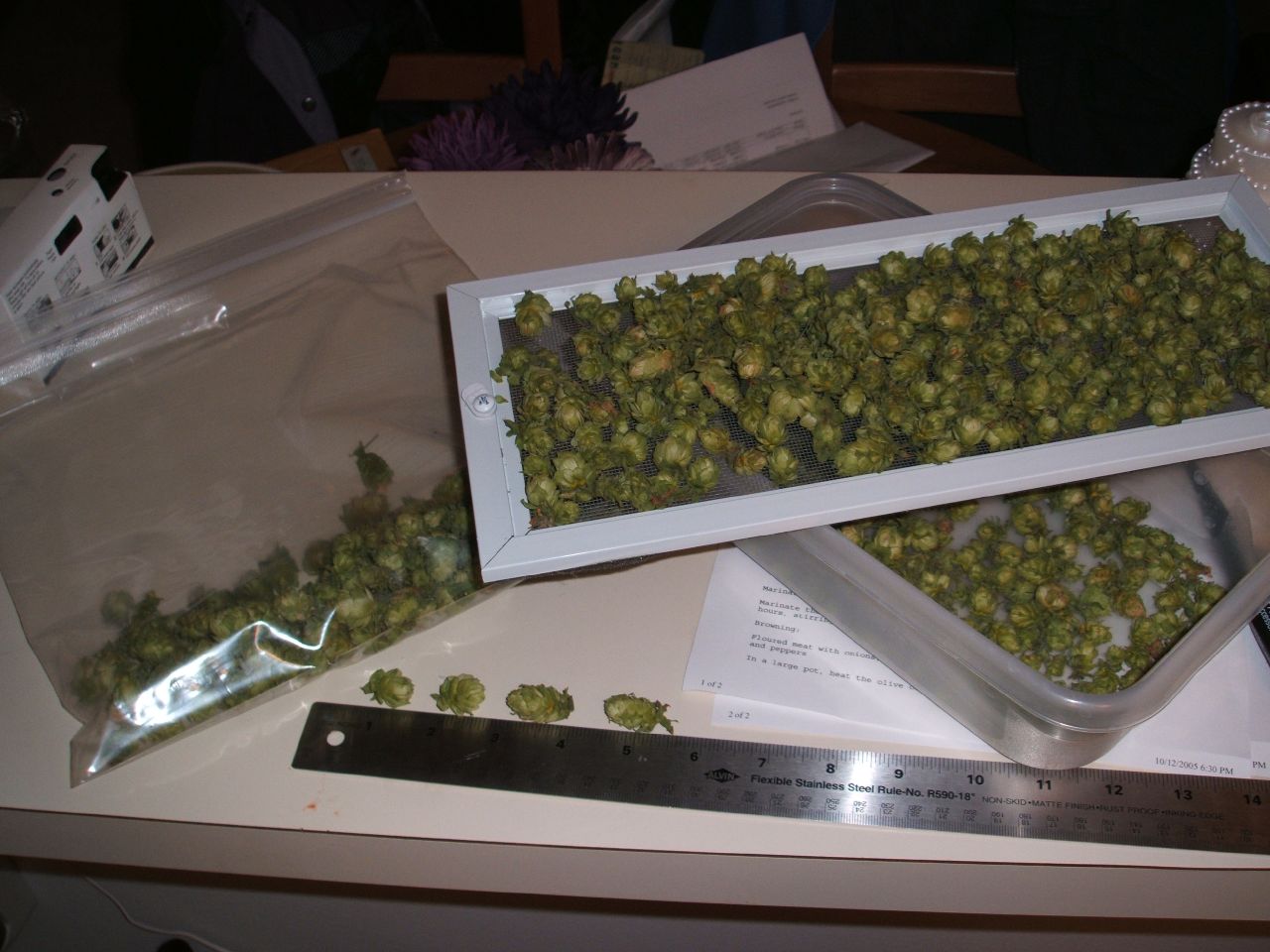I am considering growing a couple of hop vines this year on the back deck of
my condo using a couple of planters and some wood lattice up the brick
wall. I've got the fiancee in on it for the "look", but I want a good crop
come August/September as well.
Has anyone tried to grow their own, particularly in a more confined space
like a patio with planters?
I'm hoping to hear pros and cons of such an undertaking, and I would
appreciate any input.
Thanks,
Mike
So I decided to write up a quick summary of my hops growing experience to date.
Max and I each attempted to grow hops in the city during the Summer of 05. He put his in a small pot on a 2nd floor balcony facing north. He neglected to water, and he got....not much. A few sprouts and a foot or two of vine and then nada. He probably could have done a bit better if he watered some more, but even then the lack of full sun made it a non-event.
I had better success. I grew a couple of shoots out of a single rhizome in a 5 gallon sized pot on the South side of a house on the 1500 block of Walton St. The location got 6-8 hours of full sun a day, and when the plant grew above the railing it got even more. I watered almost daily for the early and mid summer and fertilized a few times as well. At the peak of growth I got 3.5' of vertical growth in a week and about 18' of total vertical growth. In the end though, I only
yielded about 1oz of final product, and the cones I did get were on the small side. Taste was difficult to discern because we had to mix them with other hops in the brew, though I could clearly smell the lupulin.
I chronicled the experience here. There are some good pictures of the final results and you can get an idea of the height.

I have done some reading on growing hops and just about everyone says you don't get much the first year because the root system needs to develop. I was surprised that I got what I did, but if you compare what I got to an established plant, you can see multiple years of root
growth is what is needed to produce decent results, like this guy's.
After the season ended, I moved my pot to a 13th floor condo balcony. I got a lot better sprouting at the start of the 2006 season and I thought I was off to a good start. It started with probably 10-12 shoots and I think i pruned back all but the best 4. However I had nothing for the plants to really grow up vertically. I used a bit of cotton line from the pot to the railing and then I decided to try to grow them back and forth across the balcony railing. This did not
work. Though I got much the same the vertical (er horizontal) growth I got the previous year, I had MAJOR trouble with the wind. And I got virtually zero hops cones. Zero. Nothing for a whole summer of daily watering and coaxing and monitoring. I was pissed. I had to move in
September of that summer, but it wouldn't have mattered because I wasn't going to get anything anyway.
So I moved the pot again. This time my balcony was on the 9th floor facing east. Well, something must have happened while the pot sat there from Sept 06 to March/April of 07 because nothing came up. Not a single shoot. The roots must have frozen too much or rotted or who knows what, but there were no hops in the summer of 07. I doubt if anything will come up this summer, but I guess I can hope.
I think I am done trying to grow hops in planters on balconys. My limited experience has shown me that hops need:
1) lots and lots of sun
2) lots and lots of water
3) lots and lots of verticle room to grow.
If you don't have these, you will probably be disappointed with the results. I don't really want to talk you out of trying something, but just be warned and don't get too frustrated if you see poor results.
Steve and my brother in law both have plants growing in yards out in the suburbs. This summer it will be the 2nd and 3rd seasons for those plants, and hopefully we will see some real results.

